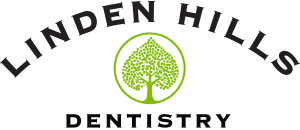Daily Dental Care Routine
In this blog, we’ll dive deep into the world of dental care, unraveling tips and tricks that are easy to follow yet impactful in maintaining your dental health.
From the basics of brushing and flossing to understanding the role of diet in oral health, we’ve got you covered. We’ll also explore how regular professional care can prevent and address dental issues, ensuring that your smile remains bright and healthy. Plus, we’ll look at the latest innovations in dental care that we proudly offer at Linden Hills Dentistry.
Ready to embark on a journey to a healthier smile? Let’s get started with our expert tips, tailored just for you by Linden Hills Dentistry.
1: Introduction to Oral Health
At Linden Hills Dentistry, we believe that a healthy smile is more than just a beautiful feature; it’s a window to your overall well-being. Oral health encompasses the health of your teeth, gums, and the entire mouth, playing a pivotal role in your general health and quality of life.
A. Importance of Oral Health in Overall Well-being
- Connection Between Oral Health and General Health
Oral health is intrinsically linked to your general health. Poor oral hygiene can lead to dental issues like cavities and gum disease, and these conditions are increasingly linked to other serious health problems. Research has shown connections between oral infections and chronic conditions such as heart disease, stroke, diabetes, and respiratory diseases. Maintaining good oral health is, therefore, not just about keeping your smile bright, but also about preserving your overall health.
- Psychological and Social Impacts
The impact of oral health extends beyond the physical. Issues like tooth loss, bad breath, and visible dental problems can significantly affect a person’s self-esteem and confidence. This, in turn, can impact social interactions and even professional opportunities. At Linden Hills Dentistry, we understand the profound influence a healthy smile can have on your psychological and social well-being.
B. Common Dental Issues and Their Impact
- Tooth Decay and Cavities
Tooth decay is one of the most common dental problems we encounter. It’s caused by plaque – a sticky film of bacteria that forms on your teeth. These bacteria produce acids that can erode tooth enamel, leading to cavities. Regular brushing, flossing, and dental check-ups are key to preventing this.
- Gum Disease
Gum disease ranges from simple gum inflammation (gingivitis) to more serious forms (periodontitis), which can lead to tooth loss. Symptoms include swollen, red gums that bleed easily. Regular dental visits are crucial for early detection and treatment.
- Oral Cancer
Oral cancer is a serious condition that can manifest in various parts of the mouth. Early detection through routine dental examinations can significantly improve outcomes.
- Sensitivity and Pain
Many people experience dental sensitivity or pain, often caused by factors like enamel wear or a receding gum line. Identifying the cause is the first step towards treatment.
- Bad Breath (Halitosis)
Chronic bad breath can be embarrassing and socially debilitating. It’s often caused by bacteria in the mouth, poor oral hygiene, or dietary choices. Consistent oral care can help manage this condition.
C. The Role of Saliva in Oral Health
Saliva plays a crucial role in oral health, from neutralizing acids to aiding in digestion. Conditions like dry mouth can significantly impact oral health, leading to an increased risk of decay and gum disease.
D. Preventive Measures and Early Detection
Prevention is better than cure, especially in dentistry. Regular dental check-ups allow for the early detection of problems, which can be key to effective treatment. Preventive measures like fluoride treatments can also play a significant role in maintaining oral health.
2: Introduction to Daily Dental Care
At Linden Hills Dentistry, we emphasize the importance of a robust daily dental care routine. Oral health is not just a matter of periodic dentist visits but a continuous commitment to good practices at home. This routine primarily revolves around three critical activities: brushing, flossing, and rinsing. Each plays a unique role in maintaining oral hygiene and ensuring the longevity and health of your teeth and gums.
A. Brushing: Techniques, Timing, and Tools
- Proper Brushing Technique
The cornerstone of oral hygiene is effective brushing. We recommend using a soft-bristled brush and fluoride toothpaste, angling the bristles at 45 degrees to the gum line. Use gentle, circular motions to clean the outer surfaces of your teeth, then proceed to the inner surfaces and finally the chewing surfaces. Don’t forget the back of your front teeth, which can be cleaned with the tip of the brush in a gentle up-and-down stroke.
- Best Times to Brush
Consistency is key. Brushing should be done at least twice a day – in the morning and before bed. If possible, brush after meals to prevent the accumulation of food particles and plaque. However, wait at least 30 minutes after eating, especially if you’ve consumed acidic foods or drinks, to avoid enamel wear.
- Choosing the Right Toothbrush
The debate between manual and electric toothbrushes often comes down to personal preference. Electric toothbrushes can be more effective for individuals with limited manual dexterity. The important thing is to choose a toothbrush with soft bristles to prevent gum damage. Replace your toothbrush every 3-4 months or sooner if the bristles become frayed.
- Importance of Toothpaste Selection
Selecting the right toothpaste is crucial. Fluoride toothpaste is recommended for its role in strengthening tooth enamel and fighting decay. If you have specific needs like teeth sensitivity or a desire for teeth whitening, there are specialized toothpastes available. However, consult with your dentist at Linden Hills Dentistry to choose the best option for you.
B. Flossing: Why It’s Essential and How to Do It Right
- Importance of Flossing
Flossing is essential for removing plaque and food particles that your toothbrush can’t reach. It helps in preventing gum disease and cavities between teeth. Flossing once a day, preferably before bedtime, is a good practice.
- Correct Flossing Technique
Use about 18 inches of floss, winding most of it around your middle fingers. Hold the floss taut with your thumbs and index fingers. Gently guide the floss between your teeth using a rubbing motion. Curve the floss around the base of each tooth, ensuring you go beneath the gumline. Use clean sections of floss as you move from tooth to tooth.
- Alternatives to Traditional Floss
For those who find traditional floss challenging, there are alternatives like water flossers and interdental brushes. Water flossers are particularly useful for people with braces or other dental appliances. They can also be more comfortable for those with sensitive gums.
C. Rinsing: Choosing the Right Mouthwash
- Benefits of Using Mouthwash
Mouthwash can access areas of the mouth that brushing and flossing may miss, offering additional plaque-removing benefits and further reducing the risk of gum disease and bad breath. It’s an excellent adjunct to your daily oral care routine.
- Types of Mouthwash
Mouthwashes are generally categorized into cosmetic (for freshening breath) and therapeutic (for dental health benefits like reducing plaque, gingivitis, and tooth decay). Some contain fluoride for extra protection against tooth decay.
- Guidelines for Mouthwash Use
We recommend using mouthwash as per the product’s instructions. Typically, it’s best used after brushing and flossing. Avoid eating or drinking for 30 minutes after using a fluoride mouthwash to allow the fluoride to take effect.
D. Additional Daily Care Tips
- Tongue Cleaning
Cleaning your tongue daily, either with your toothbrush or a tongue scraper, can remove bacteria and help freshen your breath.
- Managing Sensitivity
If you have sensitive teeth, consider using a toothpaste designed for sensitivity. These formulations can help minimize discomfort. Avoiding overly hot or cold foods and drinks can also reduce sensitivity.
- Regular Toothbrush Replacement
It’s important to replace your toothbrush regularly, every 3-4 months, and immediately after you recover from an illness, to prevent re-infection.
Conclusion
Your daily dental care routine is your first line of defense in maintaining oral health. At Linden Hills Dentistry, we encourage our patients to adopt these practices diligently. Remember, a little effort each day can lead to a lifetime of healthy smiles.
3: Introduction to Diet and Oral Health
At Linden Hills Dentistry, we understand that oral health is deeply intertwined with your dietary choices. What you eat and drink can have a significant impact on the health of your teeth and gums. In this section, we’ll explore how certain foods can protect or harm your oral health and provide tips for maintaining a diet that supports a healthy smile.
A. Foods to Embrace for Dental Health
- Foods that Promote Oral Health
Dairy Products
- Dairy products like milk, cheese, and yogurt are rich in calcium and phosphates, which play a crucial role in strengthening tooth enamel. They also help in rebalancing the pH levels in your mouth, reducing the risk of tooth decay.
Crunchy Fruits and Vegetables
- Eating crunchy fruits and vegetables like apples, carrots, and celery can help clean your teeth naturally. They stimulate saliva production, which is essential in neutralizing the acids produced by bacteria in your mouth.
Foods Rich in Vitamin C
- Vitamin C is vital for gum health. Foods like oranges, strawberries, and bell peppers can help keep your gums strong and prevent gum disease.
Water
- Water is essential for overall health, including oral health. It helps keep your mouth hydrated, washes away food particles, and dilutes the acids produced by oral bacteria.
- Herbal Teas and their Benefits
Herbal teas, particularly green tea, have antibacterial properties that can help in maintaining oral health. They can reduce bacteria and acidity in the mouth, thereby decreasing the risk of cavities and gum disease.
B. Foods and Habits to Avoid
- Sugary Foods and Beverages
Sugary foods and beverages are one of the biggest enemies of oral health. When sugar interacts with bacteria in the mouth, it produces harmful acids that attack tooth enamel, leading to cavities. Minimize consumption of sugary treats and drinks to protect your teeth.
- Acidic Foods and Drinks
Acidic foods and drinks, such as citrus fruits, tomatoes, and sodas, can erode tooth enamel over time. This can lead to increased sensitivity and decay. While you don’t need to completely avoid these foods, it’s important to consume them in moderation.
- Sticky and Hard Foods
Sticky candies and hard foods can cause physical damage to your teeth and stick to them, making it harder for saliva to wash away the sugar and acids. Be cautious with these types of foods to prevent dental issues.
- Alcohol and Tobacco
Alcohol consumption can lead to a dry mouth, which decreases saliva production – an essential component in maintaining oral health. Tobacco products are harmful to oral health, increasing the risk of gum disease, tooth loss, and oral cancer.
C. The Role of a Balanced Diet in Oral Health
- Nutritional Deficiencies and Oral Health
Nutritional deficiencies can significantly affect oral health. A lack of essential nutrients can lead to problems like gum disease, tooth decay, and even oral infections. Vitamins A, C, and D, as well as calcium and phosphorus, are particularly important for maintaining healthy teeth and gums.
- Importance of a Balanced Diet
A well-balanced diet provides the necessary nutrients to keep your oral health in check. Include a variety of fruits, vegetables, lean proteins, and whole grains to ensure that your body and mouth get all the essential nutrients they need.
D. Tips for Eating Habits
- Mindful Eating for Oral Health
Being mindful of your eating habits can greatly benefit your oral health. This includes limiting snacking between meals to reduce the amount of time your teeth are exposed to potential decay-causing substances.
- Maintaining Oral Hygiene with Diet Choices
After consuming sugary or acidic foods, it’s a good idea to drink water to help neutralize and wash away the acids. Additionally, wait for about 30 minutes before brushing your teeth after eating acidic foods to avoid damaging softened enamel.
Conclusion
Your diet plays a pivotal role in maintaining oral health. At Linden Hills Dentistry, we encourage our patients to consider their dietary choices as part of their overall oral hygiene routine. Remember, a healthy diet coupled with regular dental care is key to keeping that bright, healthy smile.
4: Introduction to Professional Dental Care
At Linden Hills Dentistry, we understand that while daily brushing and flossing are crucial, they are just part of the equation for optimal oral health. Professional dental care plays an irreplaceable role in maintaining your oral hygiene. Regular visits to your dentist go beyond just checking for cavities; they are fundamental for preventive care, early detection of issues, and receiving personalized dental advice.
A. Regular Checkups: Why They’re Crucial
- Preventive Care
Regular dental checkups are essential in preventing dental diseases before they become serious. These visits allow dentists to identify and address potential oral health issues like plaque buildup, early signs of gum disease, and more.
- Early Detection of Problems
Early detection of dental problems is key to effective treatment. Regular checkups can uncover issues such as cavities, gum disease, and even the early stages of oral cancer, often before they cause significant discomfort or require more extensive treatment.
- Customized Dental Advice
Each patient’s oral health is unique, and so are the solutions. During checkups at Linden Hills Dentistry, our dentists provide personalized advice tailored to each patient’s specific needs, whether it’s a particular brushing technique or a custom treatment plan.
B. Professional Cleaning: Beyond What You Can Do at Home
- Removing Plaque and Tartar
Professional cleanings are crucial for removing plaque and tartar that can’t be eliminated through regular brushing and flossing at home. Tartar, or hardened plaque, can only be removed with professional dental tools, preventing potential gum disease and decay.
- Polishing Teeth
Professional cleanings include polishing teeth to remove surface stains and smooth the enamel. This not only enhances the aesthetics of your smile but also contributes to better oral health by making it more difficult for plaque to adhere to smooth surfaces.
- Gum Health Assessment
Gum health is an integral part of oral hygiene. During professional cleanings, dentists also assess the health of your gums, checking for any signs of gingivitis or periodontal disease, and provide guidance on how to maintain or improve gum health.
C. Early Detection of Dental Issues
- Screening for Oral Cancer
Regular dental visits include screenings for oral cancer, an essential step in catching any potential issues at an early, more treatable stage. This is a quick, painless process that can be life-saving.
- Identifying Hidden Problems with X-Rays
Dental X-rays are invaluable tools in detecting problems that are not visible during a regular dental examination. These can include issues below the gum line, such as impacted teeth, abscesses, cysts, or tumors.
- Monitoring Changes Over Time
By visiting the dentist regularly, we can monitor changes in your oral health over time. This ongoing record helps in early intervention and tailored treatments, ensuring the best outcomes for your dental health.
D. Advanced Dental Treatments and Procedures
- Restorative Procedures
Linden Hills Dentistry offers a variety of restorative procedures such as fillings, crowns, and bridges. These treatments are essential in restoring the functionality and aesthetics of teeth that have been damaged or lost.
- Cosmetic Dentistry
For those looking to enhance their smile, we offer cosmetic dentistry options like teeth whitening and veneers. These procedures can significantly improve the appearance of your teeth, boosting confidence and self-esteem.
- Orthodontics and Aligners
We also provide orthodontic treatments, including traditional braces and clear aligners, to correct misaligned teeth and improve bite issues. These treatments are not just about aesthetics; they also contribute to better oral health by making it easier to clean your teeth effectively.
Conclusion
Professional dental care is a cornerstone of maintaining optimal oral health. At Linden Hills Dentistry, we are committed to providing comprehensive care, from regular checkups and cleanings to advanced treatments and procedures. We encourage our patients to prioritize their dental visits, as these are critical steps in keeping their smiles bright and healthy.


